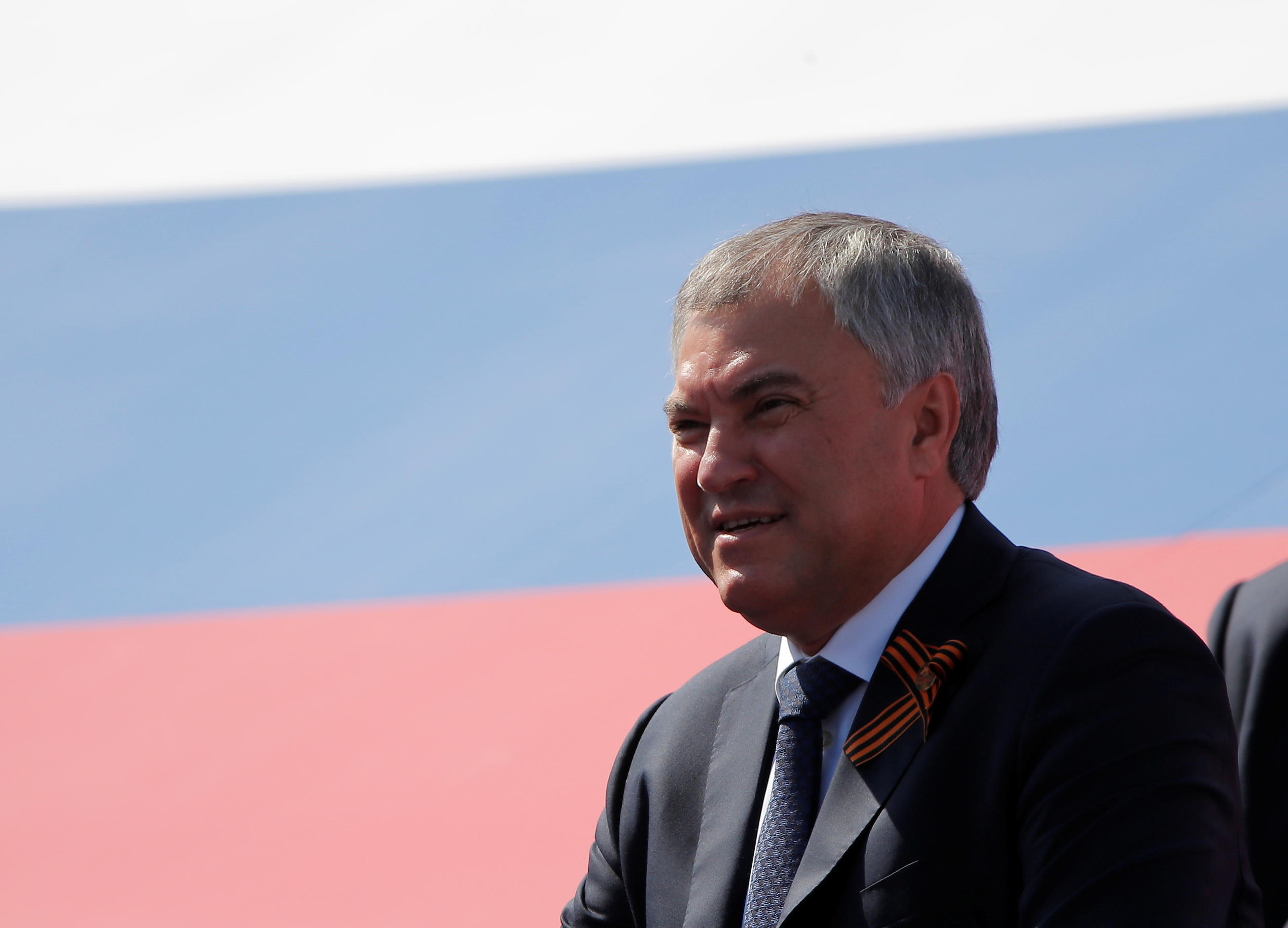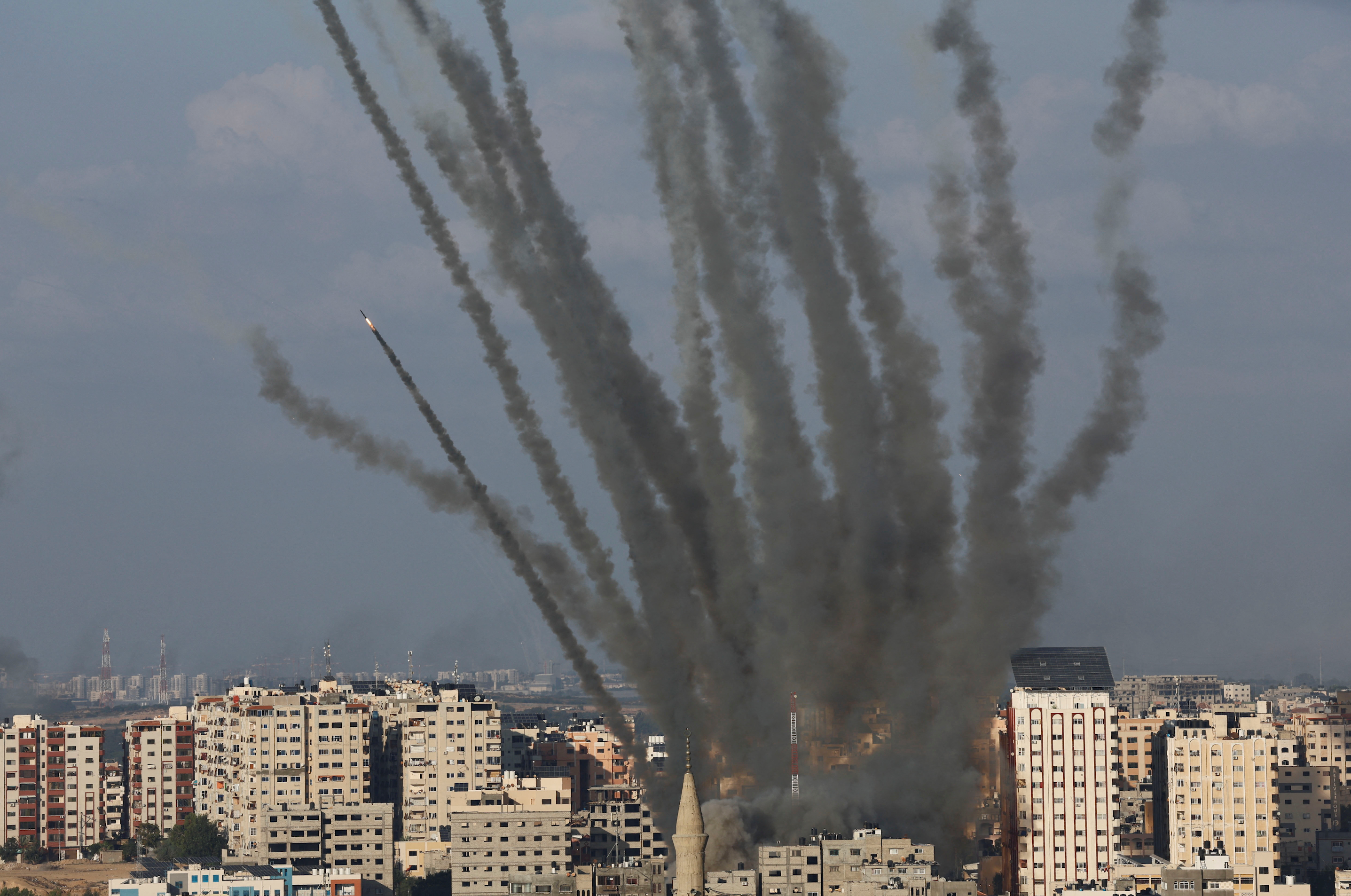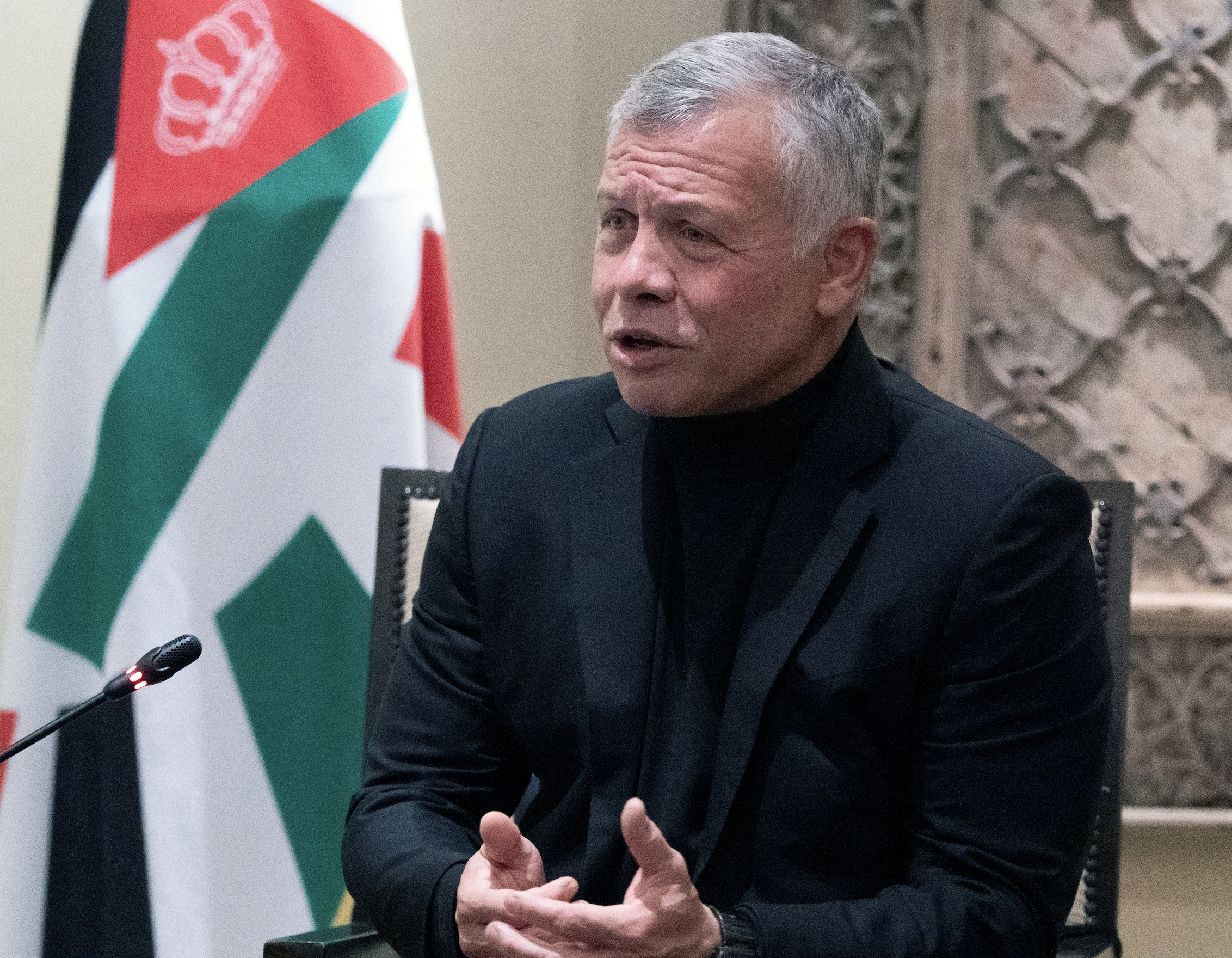
Returning Russians who sided with Ukraine must be sent to Gulag region, says Putin ally
PHOTO CAPTION: Russia's State Duma Speaker Vyacheslav Volodin is seen before the Victory Day Parade in Red Square in Moscow, Russia June 24, 2020. REUTERS/Maxim Shemetov
By Andrew Osborn
(Reuters) - Russians who fled the country to side with Ukraine should be charged with treason and sent to work in mines in parts of Russia where there is no summer if they return home, the chairman of Russia's parliament said on Wednesday.
Russia's war in Ukraine, something it calls a "special military operation", and a subsequent mobilisation campaign, prompted several hundred thousand Russians to leave their homeland, though it is unclear exactly how many.
Moscow has tried to encourage some specialists, such as IT workers, to return and says some Russians have come back.
But Vyacheslav Volodin, the speaker of the Duma, the lower house of parliament, made it clear on Wednesday that the authorities were less keen to see Russians whom he and others regard as traitors returning.
"If they start returning now but have made statements against the country and financed the armed forces of Ukraine then of course we must choose a place to send them immediately," Volodin told parliament.
"Such actions relate to article 275 of the criminal code - state treason. We're probably... talking about mines and we need to find territories where the weather is more constant, where there's no summer."
Volodin, an ally of President Vladimir Putin, had suggested on Monday that such people, known in Russian as "relokanty", should be sent to the far eastern region of Magadan known for its Stalin-era Gulag camps.
LOCAL PRIDE
However Sergei Nosov, the governor of the region, objected, saying Magadan did not accept traitors - an idea he said was based on an outdated cliche that it was time to jettison - and was now home to hard-working patriotic Russians.
Volodin responded on Wednesday, saying that returning and traitorous 'relokanty' - whom he called lazy wasters - should not be sent to Magadan, whose inhabitants he recognised had been insulted by such an idea, but to other, as yet unidentified places.
A video of his comments was posted on Telegram by a lawmaker.
The Kremlin clarified its own position on the issue on Wednesday, saying it was not "on the same path" as Russians who had fled and adopted what it called strong anti-Russian positions, but that other Russians were free to return.
"Yes, indeed, we are not on the same path with these people," said Kremlin spokesman Dmitry Peskov.
But he said that others who had left, whom he described as people who freely choose where they live at any given time, were "the vast majority" and were always welcome to return.
"...Of course, these people always, no matter what, have their homeland - Russia. And she's always waiting for them," said Peskov.
(Reporting by Reuters; Writing by Andrew Osborn; Editing by Gareth Jones)










